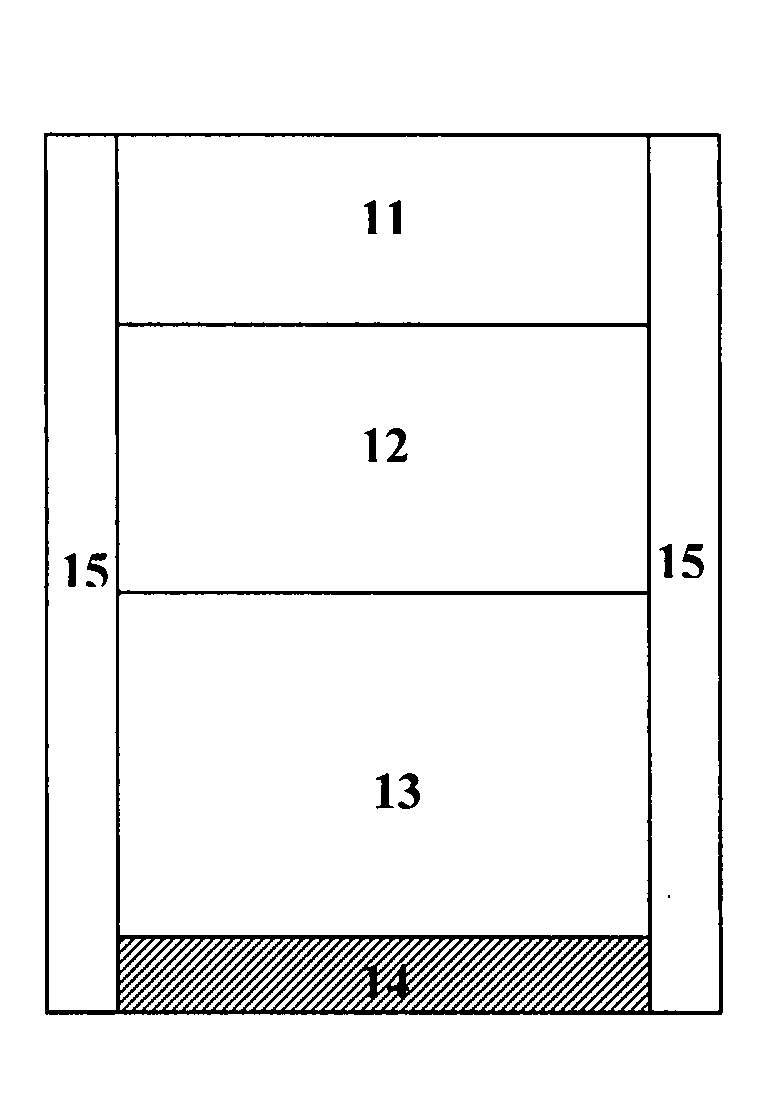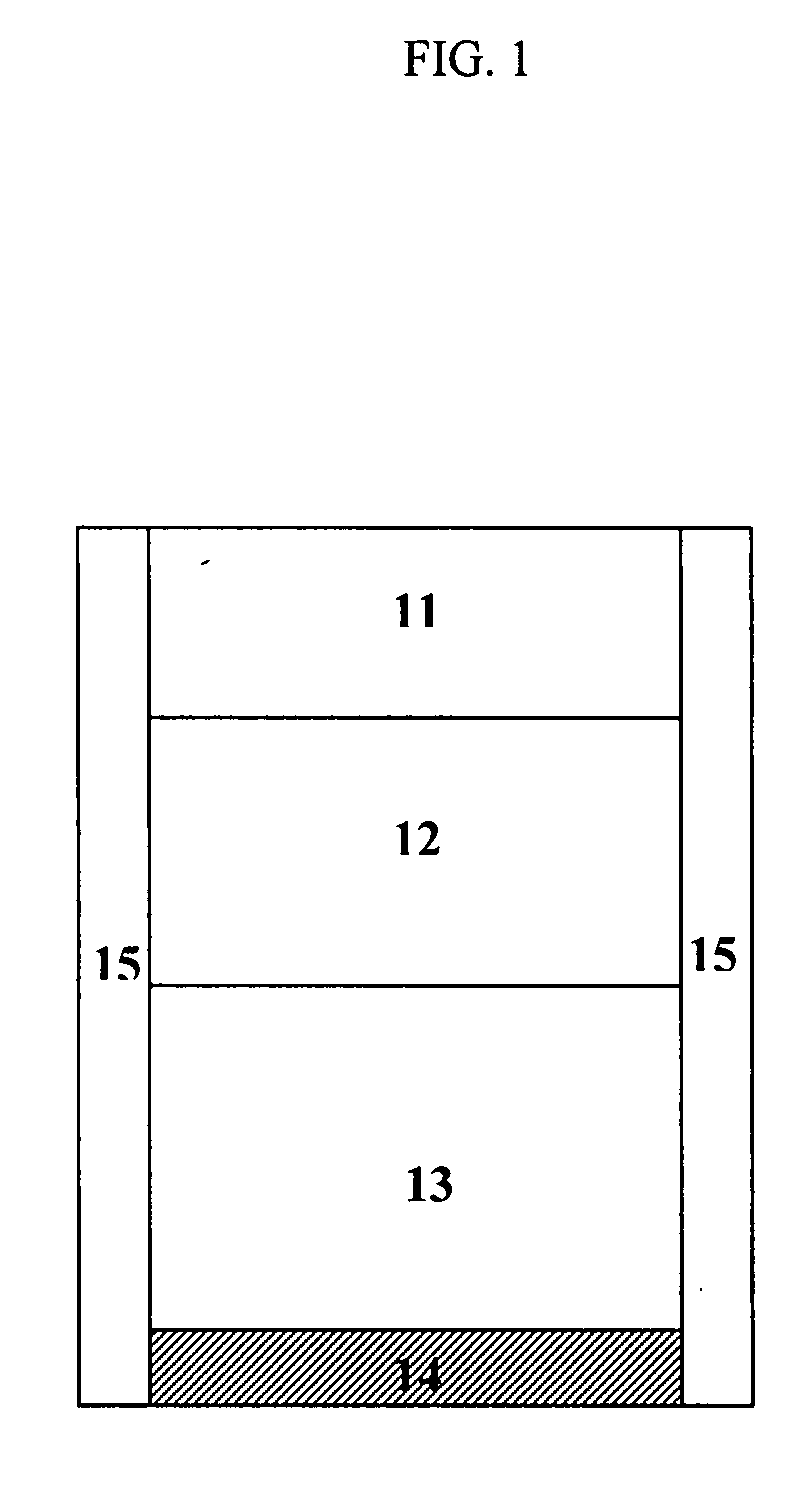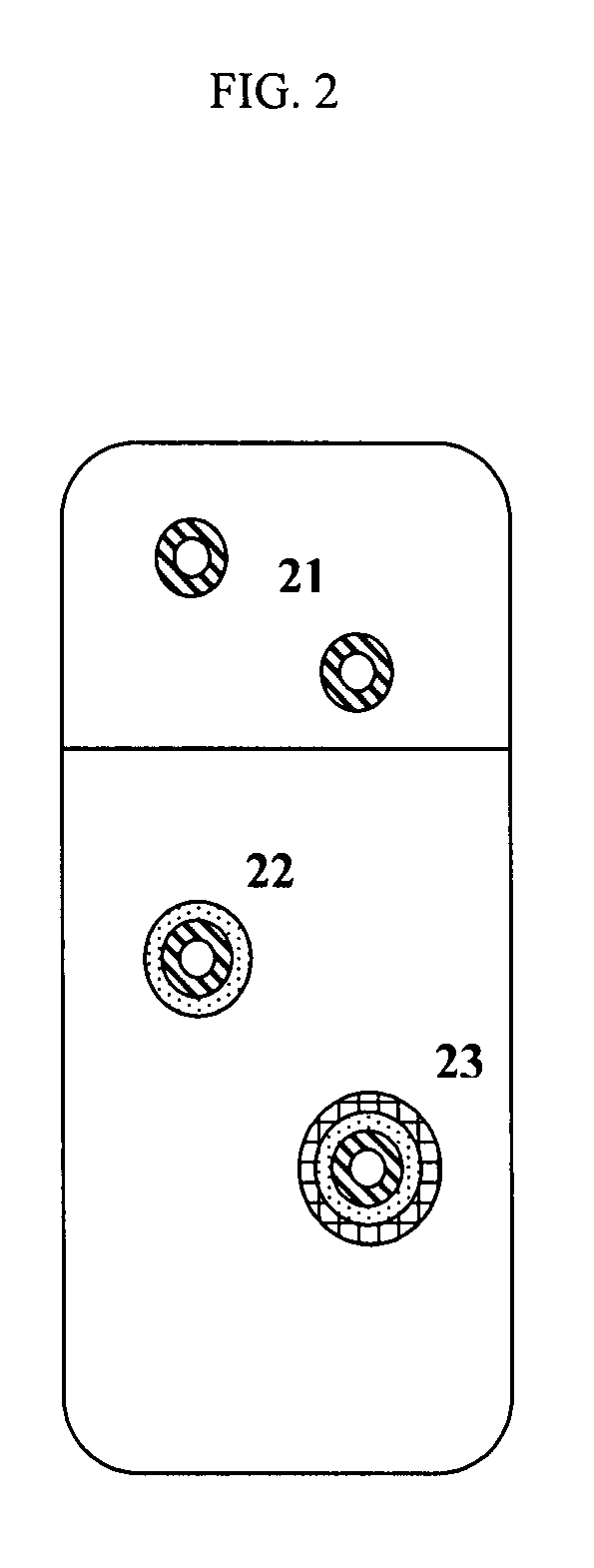Dosage forms for movement disorder treatment
a technology for movement disorders and dosage forms, applied in the direction of bandages, biocide, peptide/protein ingredients, etc., can solve the problems of affecting the function of the affected area, affecting the ability and distress of patients, and relative excess of acetylcholin
- Summary
- Abstract
- Description
- Claims
- Application Information
AI Technical Summary
Benefits of technology
Problems solved by technology
Method used
Image
Examples
example 1
Release Profile of a Dosage Form with IR+CR+IR Componets
[0840]FIGS. 15 and 16 show two representative release profiles of a subject dosage formulation comprising a first immediate release portion (IR), a second substantially zero-order release portion (CR), and a third portion comprising a second immediate release portion (IR).
[0841]Specifically, FIG. 15 shows a representative release profile of an exemplary dosage formulation comprising a first immediate release portion (IR), a second substantially zero-order release portion (CR), and a third delayed immediate release portion (IR). For instance, each of the three portions may amount to about ⅓ of the total dosage form.
[0842]The percentage of carbidopa and levodopa released over time clearly shows a three-stage release profile. In the first stage of release, the first IR portion is rapidly dissolved, such that about 30% of the total carbidopa and about 30% of the total levodopa are released within about 30 minutes. Then both carbido...
example 2
In vivo Release of Levodopa and Carbidopa
[0847]The following experiment was designed to determine if effective levodopa concentration in vivo is increased at the presence of a higher ratio of carbidopa to levodopa (as compared to that used in conventional therapy).
[0848]SINEMET® CR tablets (50 mg carbidopa / 200 mg levodopa) were administered to fed beagle dogs either alone or after pre-dosing with 12.5 mg of carbidopa, and plasma concentrations of carbidopa and levodopa were measured over time (data not shown). The AUC (Area Under the Concentration-time curve) for each set of measurements were also summarized in Table 1 below.
TABLE IAUC0-24 (ng / mL × hr) of Carbidopa and LevodopaSINEMET ® CRCarbidopa + SINEMET ® CRLevodopa3903 ± 2988640 ± 2064Carbidopa215 ± 43592 ± 303
[0849]Table I clearly shows a significant (almost 100%) increase in both peak concentrations for carbidopa and levodopa, and AUC0-24 , despite the fact that the total amount of levodopa in all experiments remained the sa...
example 3
Exemplary Multilayer Tablet and Multiparticulate Capsule Formulations
[0850]Given any specific release profiles, the effective components of the subject pharmaceutical compositions may be formulated in a number of ways to achieve the given release profile. The following examples provide two specific formulations—a multilayer tablet form and a multiparticulate capsule form—that both may be formulated to achieve substantially the same release profile.
[0851]For both the tablet and the capsule forms, the subject pharmaceutical compositions (e.g., Levodopa and / or Carbidopa) may be formulated as extended release formulations. Applicants have provided two different formulations, the multilayer tablet and the multiparticulate capsule forms. The multilayer extended release tablet approach is identical to the multiparticulate extended release capsule formulations with respect to the active pharmaceutical ingredients and the achieved dose level.
[0852]The SPHEROMER™ III or IV bioadhesive polymer...
PUM
| Property | Measurement | Unit |
|---|---|---|
| Time | aaaaa | aaaaa |
| Time | aaaaa | aaaaa |
| Time | aaaaa | aaaaa |
Abstract
Description
Claims
Application Information
 Login to View More
Login to View More - R&D
- Intellectual Property
- Life Sciences
- Materials
- Tech Scout
- Unparalleled Data Quality
- Higher Quality Content
- 60% Fewer Hallucinations
Browse by: Latest US Patents, China's latest patents, Technical Efficacy Thesaurus, Application Domain, Technology Topic, Popular Technical Reports.
© 2025 PatSnap. All rights reserved.Legal|Privacy policy|Modern Slavery Act Transparency Statement|Sitemap|About US| Contact US: help@patsnap.com



